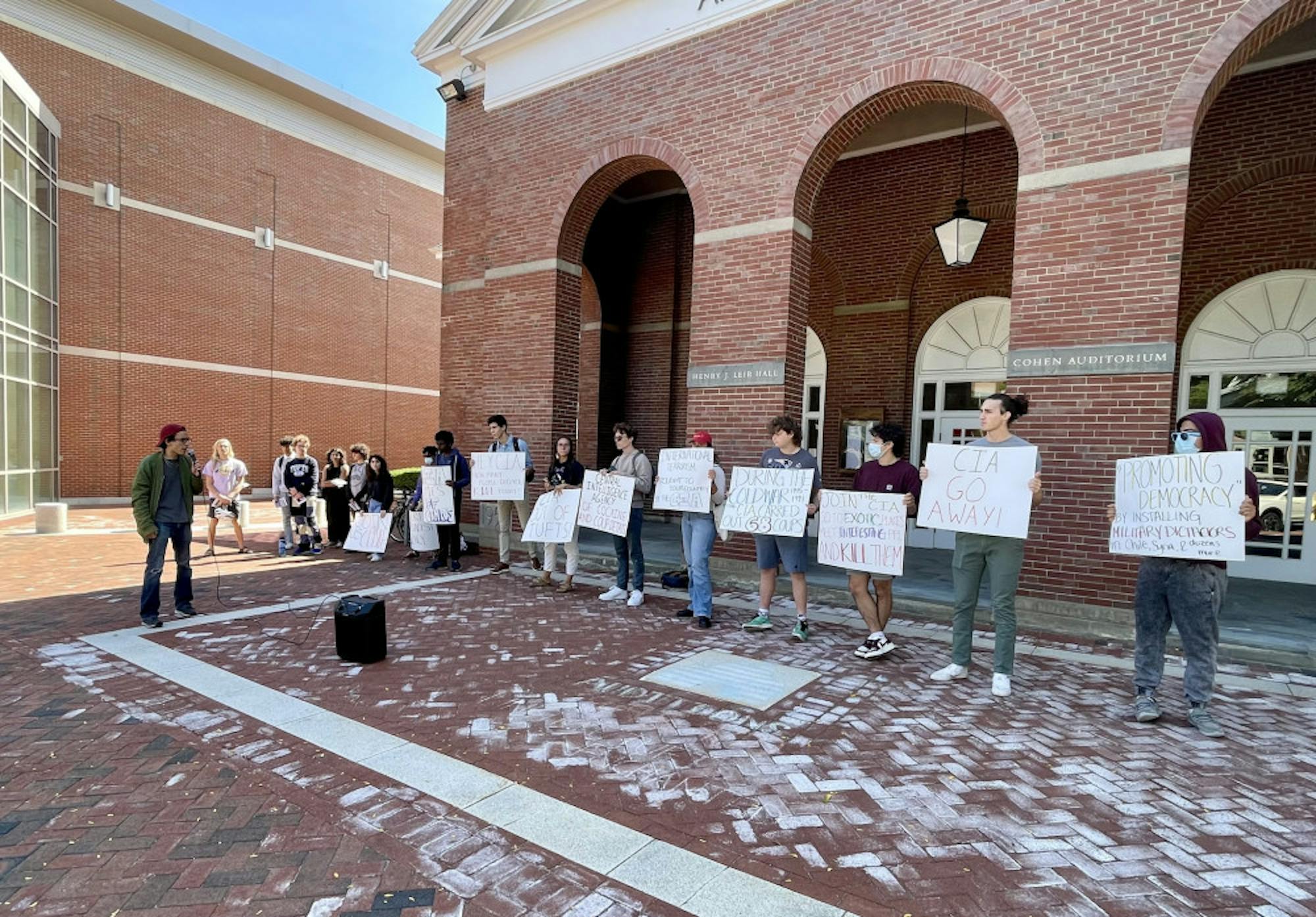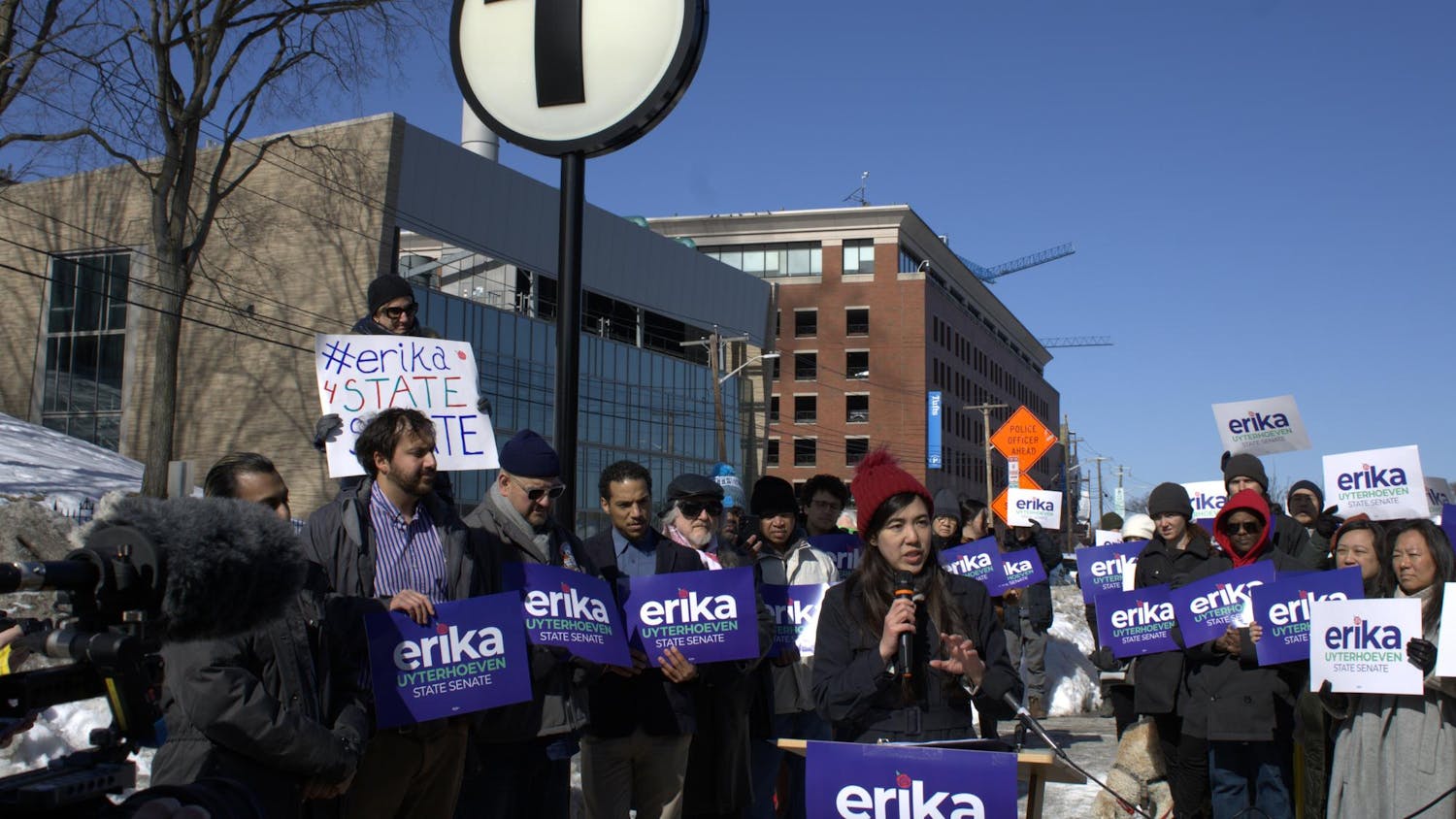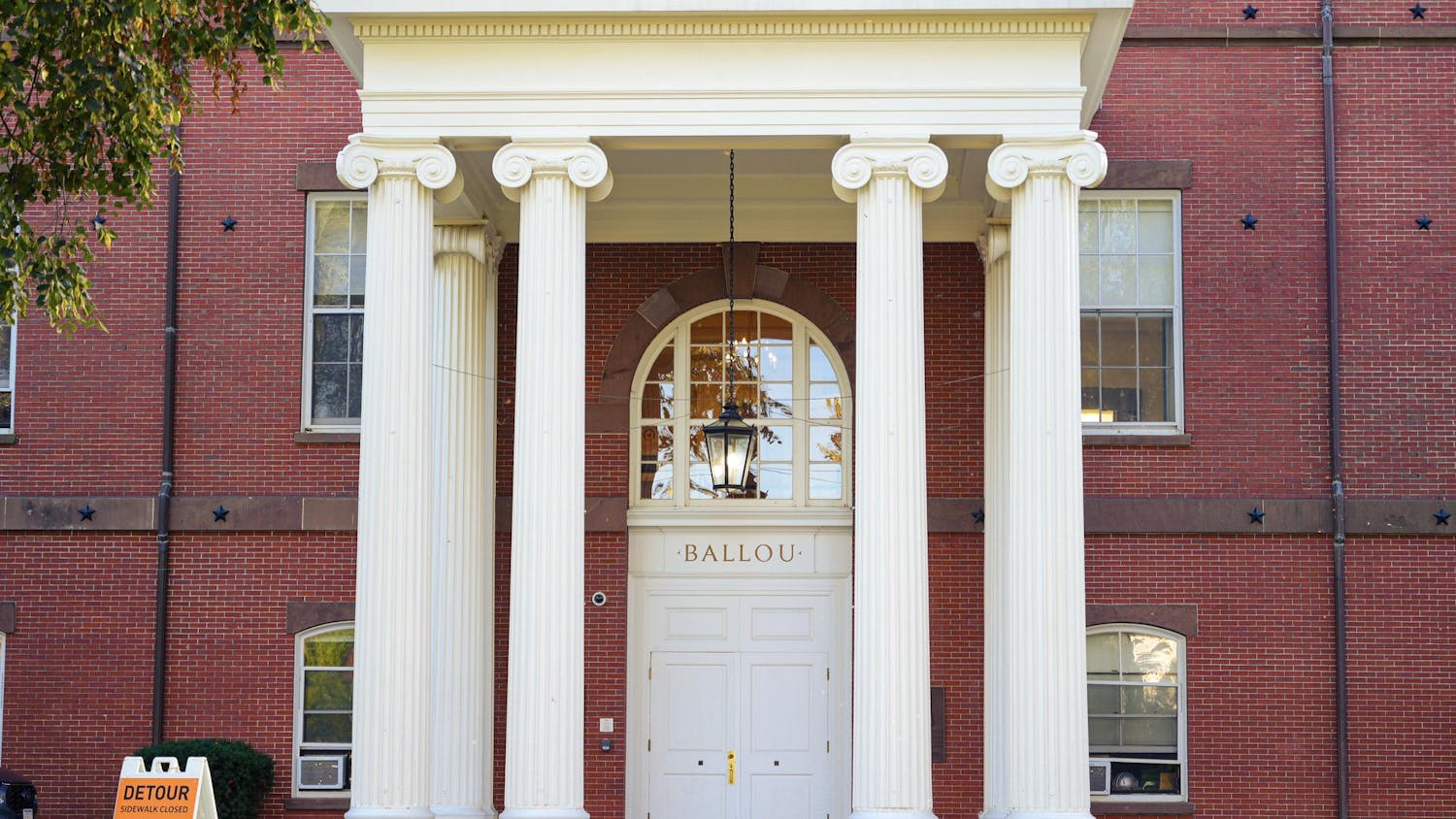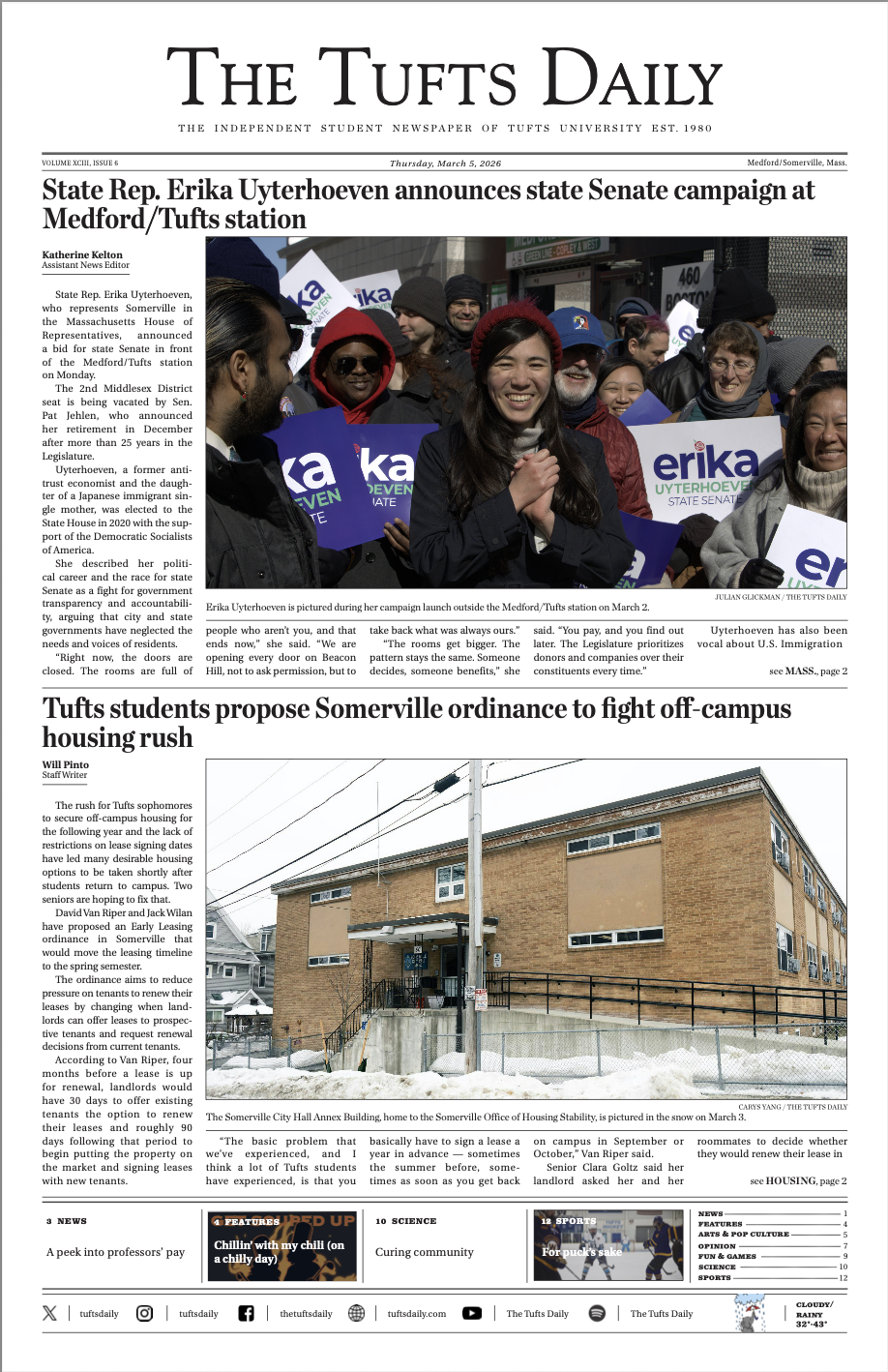Students and community members staged a protest outside a Central Intelligence Agency recruitment event in Cohen Auditorium on Friday afternoon. The event, which was sponsored by the Tufts Career Center, was not disrupted by the protest.
Upwards of 20 people joined the protest outside Cohen Auditorium, holding anti-CIA signs and chanting. At one point, the protesters booed at a large group of students entering the auditorium for the recruitment event.
Sam, a local student who asked that their last name be omitted, handed anti-CIA pamphlets to passersby during the protest.
“I heard that the CIA was going to be recruiting Tufts students, which is something I really disagree with,” they said.
From inside the lobby of the Aidekman Arts Center, the sounds of the protest were muffled. The recruitment event, which was only open to students with appointments, was not cut short by the protest.
Two Tufts police officers stood by during the event but did not intervene in the protest.
Donna Esposito, the executive director of the Tufts Career Center, affirmed the students’ right to protest the event and defended the decision to host the CIA.
“We respect the right of students to exercise their free speech rights and to express their opinions in accordance with Tufts’ policy on Gatherings, Protests, and Demonstrations, which they did,” Esposito wrote in an email to the Daily. “We also know that many students are interested in hearing about the varied job and internship opportunities that the CIA offers.”
Beginning at 1:15 p.m. and lasting the duration of the event, protesters chanted messages such as, “When the spies arrive, people die,” and “Hey, hey, CIA, how many people did you kill today?” Protestors also handed out flyers with information on U.S.-backed coups to students entering Cohen Auditorium.
During the Cold War, the CIA successfully carried out 26 coups, many of which took place in Latin America. Oftentimes, the coups replaced leftist leaders with dictators such as Augusto Pinochet of Chile.
Student protests against government agencies and military contractors are not new to Tufts; as far back as 1984, students protested the CIA recruiting events. In the spring 2022 semester, students protested against Raytheon and General Dynamics, cutting the latter event short.
Max, an undergraduate student who asked that his last name be omitted, originally had no plans to join the protest.
“I live in [Sophia Gordon Hall], so I heard [the protestors] outside the window,” he said. “I know there are a lot of people who I agree with who are very disgusted by the CIA. I know there are a lot of people who I very much disagree with who are opposed to the CIA. I wanted to come out and find out which it was. It turns out it’s the people I agree with.”
Daisy, a student from Amherst, Mass., joined the protest to prepare for an event she is planning at her school.
“We’re trying to do something similar at UMass Amherst, because on Wednesday, Raytheon is coming,” Daisy said.
Also joining the protest were representatives from Massachusetts Peace Action, an anti-war group that worked with Tufts students in the past to protest Raytheon. Maya Morris, a Tufts student who planned the demonstrations against Raytheon and General Dynamics, organized Friday’s CIA protest.
“They say they are only coming to give us job opportunities and good salary and security,” Morris said. “But really, what are these jobs about? They're about working for these different corporations and government agencies that are aiding in the overall U.S. interests to plunder countries abroad and to repress people abroad and at home.”
The protestors primarily attacked the CIA’s role in coups during the Cold War and its connections to narcotics trafficking in the 1980s.
“If you look at what was going on in the ‘70s with the drugs that the CIA was helping funnel into [Los Angeles] … it actually helped spur the crack epidemic in LA,” Sam said.
Esposito noted in her email that “an employer’s presence at a Career Center event should not be interpreted as a university endorsement of the organization.”
Morris suggested that universities indirectly help the CIA by developing technology used in war.
“Agencies like the CIA, the government as a whole [and] different defense contractors are using [technology] in order to better carry out their coups,” Morris claimed. “There’s an intimate relationship between universities like Tufts and the CIA.”






